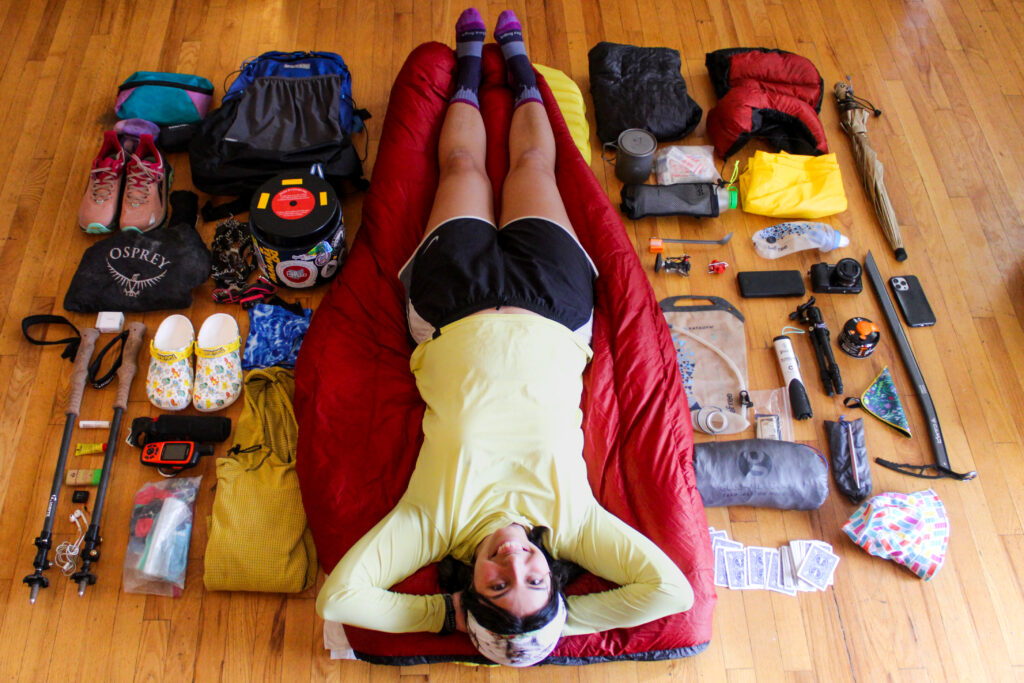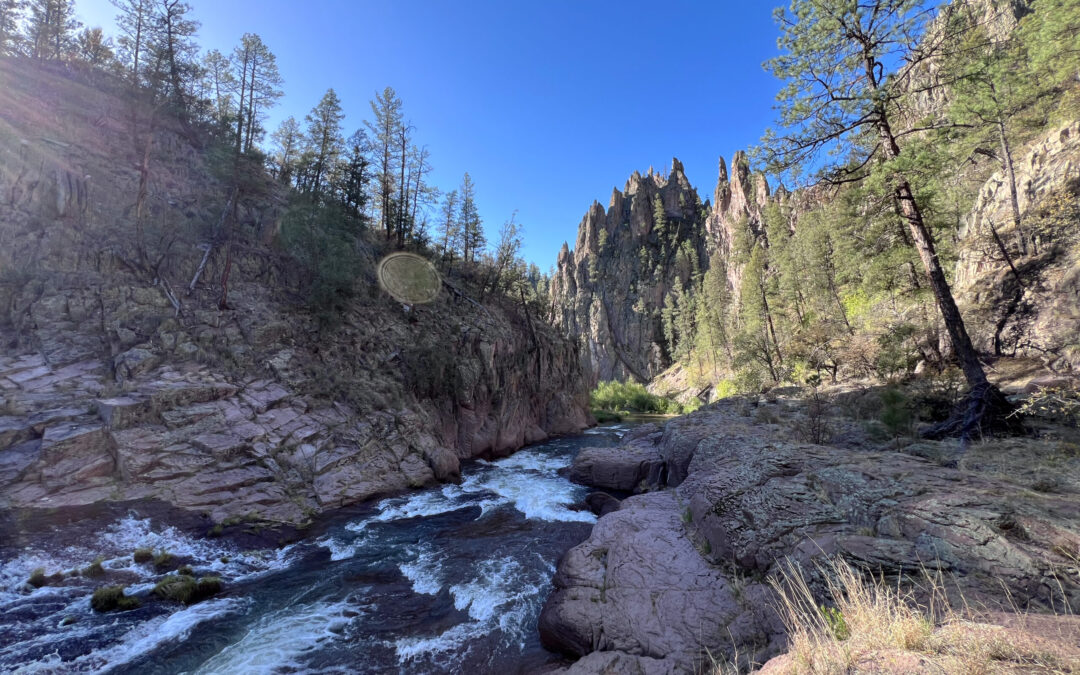By CDT Ambassador Madelyn “Wrong Way” Dukart
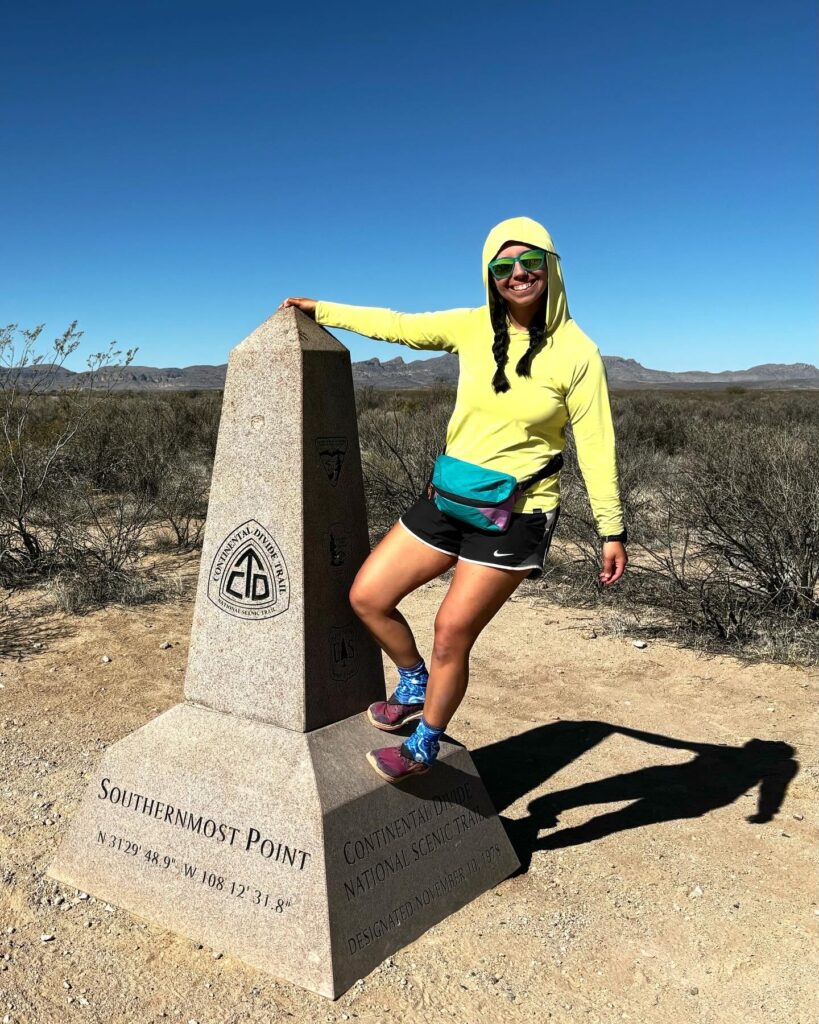
There is nothing quite like the anticipation of a thru-hike. There’s something so exhilarating about combing through the blog posts of previous hikers, trying to glean as much useful information as possible; preparing your gear and making adjustments, big or small, imperative or superficial; and ranking the parts of the trail you’re most excited for or dreading the most. Not to mention the sacrifices you have to make: quitting your job(s), leaving behind friends and family, and turning down opportunities to save enough money to make the trip possible, to name a few.
Embarking on a thru-hike is a difficult task, and nothing quite prepares you for the day-to-day challenges. From weather conditions to having to carry every ounce of food and water you consume on your back to just being tired from hiking as many hours per day as most people work a job, thru-hiking is just plain hard.
Only about 25% of thru-hike attempters on the U.S. Triple Crown trails – the Appalachian Trail, the Pacific Crest Trail, and the Continental Divide Trail – actually make it to the end of the hike. Finishing a thru-hike is a truly remarkable achievement.
As someone who has completed the Appalachian Trail and been forced off the Continental Divide Trail due to a serious injury, I can tell you that the latter experience has been a million times harder.
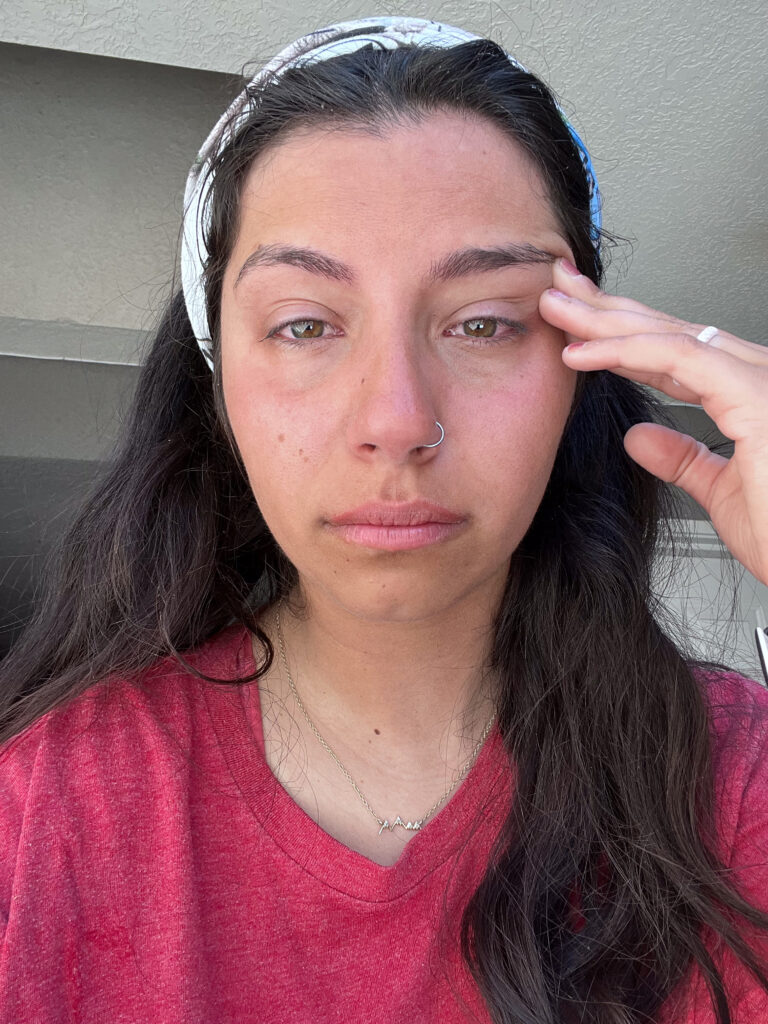
Being part of the 75% that will not complete this year’s thru-hike has made me feel many things, but “alone” has been one of the most predominant, and surprising, sentiments. For how many of us have to leave the trail before we complete it, I’ve felt a huge sense of isolation in this space. Besides being physically separated from the trail itself and the community it fosters, it’s felt like I’ve been the only one experiencing this massive loss and frustration, despite the fact that many others are in the same situation.
Getting off trail before you’re ready to is a tumultuous experience. The day I decided to take a short break from trail, before I knew that the severity of the injury would push me totally off, I honestly felt weak for making the decision to rest my body. Part of the trail experience is being in some amount of pain a lot of the time. The unofficial motto of the Continental Divide Trail is “Embrace the brutality.” I looked around at everyone else, waddling and aching and experiencing their own pains, and wondered why I was the only one who wasn’t able to hack it. I felt genuine relief when I learned that the injury was a femoral neck stress fracture; not only was I validated in the pain I was experiencing, but getting off trail when I did saved me from an even worse injury that would have required much more intensive recovery – as it is, I already am dealing with 6+ weeks of being non-weight-bearing, and then a 4-week walking progression up to 5 miles once I’m cleared to be off crutches.
The pain from the stress fracture has been nothing compared to the pain of watching my friends and trail comrades continue on the trail that I should be on.
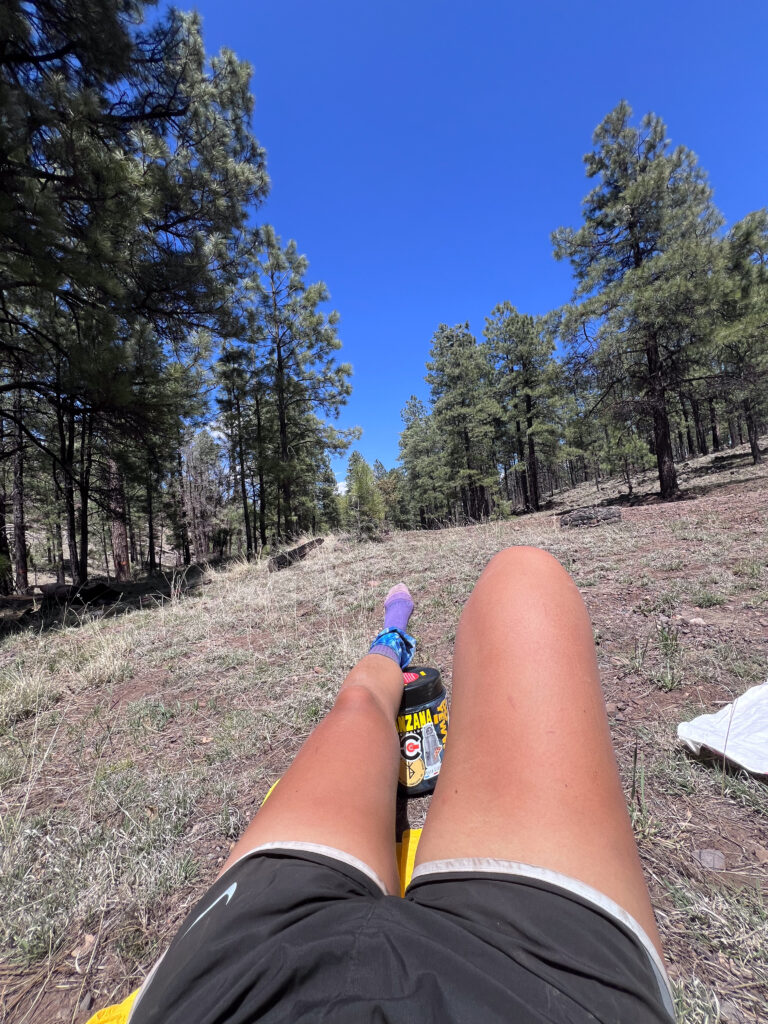
I took a break from Instagram for several days, and I even muted my best friend’s posts and stories for a while because seeing her experience what I should have been experiencing made me want to burst. And then I noticed… nobody gets off trail and then posts pretty photos or stories from their couch. The 75% of us that get off feel alone because we all just retreat into our shells and avoid the trail community out of jealousy, bitterness, and shame.
Nobody is as hard on thru-hikers as ourselves. Nobody in the real world thinks we’re weak for getting off trail. Nobody on the trail thinks we’re weak for getting off trail. And yet I think all of us feel a sense of shame that we “failed.” We force ourselves into solitude because we don’t feel a part of the on-trail community and we’re not ready to be a part of the off-trail community. Injury recovery takes a huge toll on your mental health and your perception of yourself. As a thru-hiker, I feel exceptional, interesting, and fit; as a couched athlete, I feel lost, sluggish, and impatient. It’s hard to explain to non-thru-hikers why the injury itself has been the easiest part of the whole experience.
If you are a part of this year’s (or any year’s) 75%, I genuinely have no advice for you – this journey is incredibly hard and personal – but I want you to know that you are not alone. Welcome to the majority. It sucks, doesn’t it?
Find Madelyn on Instagram at @madelyn_meanders
